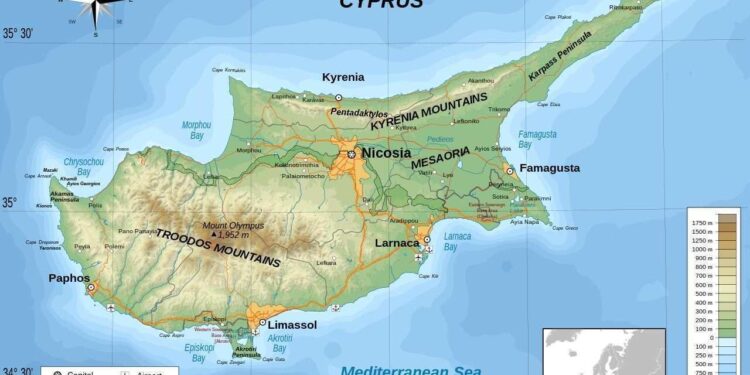Cyprus has missed a critical European Union deadline linked to the establishment of a long-anticipated sanctions enforcement unit, raising concerns about the bloc’s ability to ensure consistent implementation of restrictive measures. According to an investigation by the International Consortium of Investigative Journalists (ICIJ), delays in setting up the specialized body highlight underlying political and administrative challenges within the island nation, complicating the EU’s broader efforts to respond swiftly and effectively to international sanctions regimes. This setback underscores the ongoing difficulties faced by member states in aligning national infrastructure with collective EU mandates.
Cyprus Fails to Meet EU Deadline Amid Delays in Establishing Sanctions Enforcement Unit
Cyprus has once again missed a key European Union deadline aimed at strengthening the bloc’s sanctions enforcement framework. Despite repeated calls for swift action, the island nation has been unable to finalize the establishment of a dedicated unit responsible for implementing and monitoring EU sanctions. The delay raises concerns across Brussels about Cyprus’s commitment to tightening regulatory measures, especially amid growing geopolitical tensions and the expanding list of sanctioned entities.
Key factors contributing to the setback include:
- Administrative bottlenecks within national agencies
- Lack of adequate funding and trained personnel
- Fragmented coordination between government departments
| Deadline | Status | Implications |
|---|---|---|
| March 2024 | Missed | Potential EU sanctions monitoring gaps |
| June 2024 (Revised) | Pending | Pressure to comply escalates |
Implications of Cyprus’s Inaction for EU Sanctions Effectiveness and Regional Security
The delay in Cyprus establishing its dedicated sanctions enforcement unit has raised urgent concerns across the European Union about the overall efficacy of collective measures against sanctioned entities. As one of the EU member states strategically positioned at the crossroads of Europe, Asia, and Africa, Cyprus’s inaction creates a loophole that could be exploited for sanction evasion and illicit financial flows. Experts warn that this not only undermines the integrity of the EU sanctions regime but also weakens the bloc’s unified front in addressing geopolitical threats. The failure to meet the deadline threatens to embolden sanctioned actors who rely on fragmented enforcement to continue operations unchecked.
Moreover, the regional security landscape is becoming increasingly precarious as the delay extrapolates beyond mere administrative shortcomings. Cyprus’s geographical proximity to flashpoints in the Eastern Mediterranean means that robust sanctions enforcement is critical in deterring malign influences and maintaining stability. Key implications include:
- Reduced deterrence: Sanctioned actors may perceive Cyprus as a safe harbor, encouraging further destabilizing activities.
- Economic spillover risks: Weak sanctions implementation could facilitate money laundering, impacting neighboring EU economies.
- Diplomatic tension: Other EU states may pressure Cyprus to accelerate compliance, testing intra-union cohesion.
| Impact Area | Potential Consequences |
|---|---|
| Enforcement Gaps | Sanctions Evasion |
| Regional Stability | Increased Tensions |
| EU Unity | Strained Relations |
Calls for Increased Transparency and Strengthened Oversight in Cyprus’s Sanctions Implementation Process
Amid growing concerns, policymakers and civil society organizations have intensified demands for greater clarity and accountability in Cyprus’s sanctions enforcement framework. Critics argue that the absence of a fully functional sanctions unit has not only delayed critical EU-mandated actions but also undermined the island’s reputation as a reliable partner in international regulatory efforts. Calls emphasize the need for clearer reporting mechanisms to track sanction violations and ensure swift punitive measures. Without transparent processes, stakeholders warn that loopholes may persist, enabling sanctioned entities to exploit regulatory gaps.
The push for strengthened oversight is accompanied by specific proposals aimed at enhancing compliance and institutional capacity. Key recommendations include:
- Independent audits of sanction enforcement operations to identify inefficiencies
- An integrated digital monitoring system to streamline cross-agency information sharing
- Mandatory periodic public disclosures detailing sanction enforcement statuses
- Enhanced training programs for enforcement officers to better equip them with EU regulatory standards
| Aspect | Current Status | Proposed Improvement |
|---|---|---|
| Interagency Coordination | Fragmented | Unified Task Force |
| Transparency Level | Minimal Public Reporting | Quarterly Mandatory Reports |
| Sanction Monitoring | Manual and Inconsistent | Automated Digital System |
| Enforcement Training | Ad Hoc Sessions | Regular EU-Aligned Curriculum |
In Retrospect
As Cyprus continues to delay the establishment of the EU-mandated sanctions unit, questions remain over the island nation’s commitment to enforcing economic measures aimed at curbing illicit activities. The missed deadline not only raises concerns within the European Union but also underscores the ongoing challenges faced by member states in aligning national frameworks with bloc-wide security priorities. Observers will be watching closely to see how Cyprus addresses these shortcomings in the coming months, as pressure mounts to bring the long-awaited sanctions unit into operation.
















